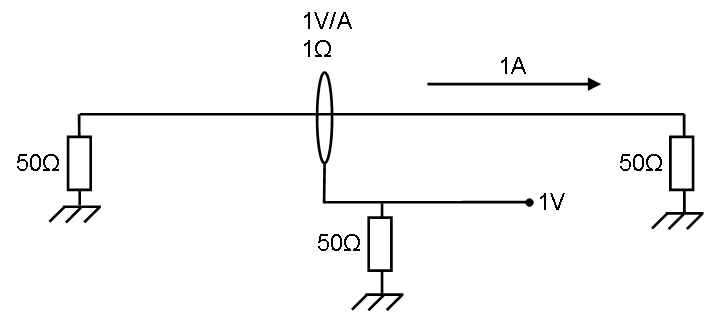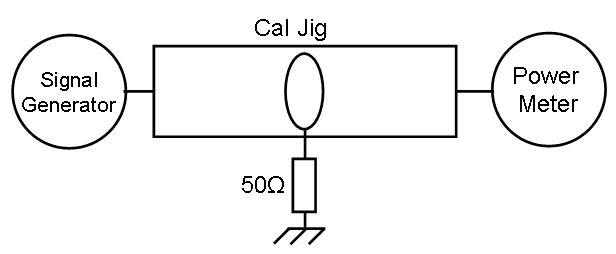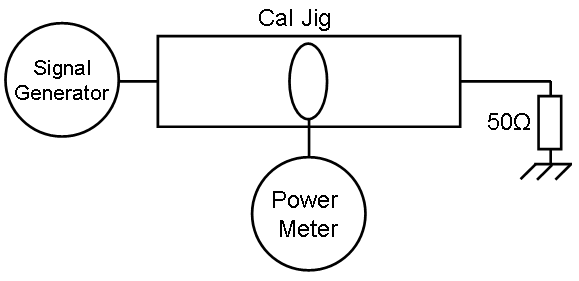Current sensor transfer impedance determination method: Difference between revisions
Jump to navigation
Jump to search
No edit summary |
(→Theory) |
||
| Line 9: | Line 9: | ||
The power in the lower 50 ohm impedance is <math>P = \frac{U^2}{R} = 20 \ mWatt</math> | The power in the lower 50 ohm impedance is <math>P = \frac{U^2}{R} = 20 \ mWatt</math> | ||
So 1 ohm: <math>10*^{10}log(\frac{0,02}{50}) \approx -33,98 dB</math> | |||
= Reference measurement = | = Reference measurement = | ||
Revision as of 15:25, 23 January 2009
Theory[edit]
The left impedance is the signal generator which is generating enough power for 1 ampere.
This 1Amp. generates in the right impedance.
The current sensor has 1 ohm transfer impedance, this means 1 ampere generates 1 Volt on the measuring part below.
The power in the lower 50 ohm impedance is
So 1 ohm:
Reference measurement[edit]
Probe measurement[edit]
Calculation[edit]
and in dBm.
| Note: | This method is not a replacement for a real calibration. |








